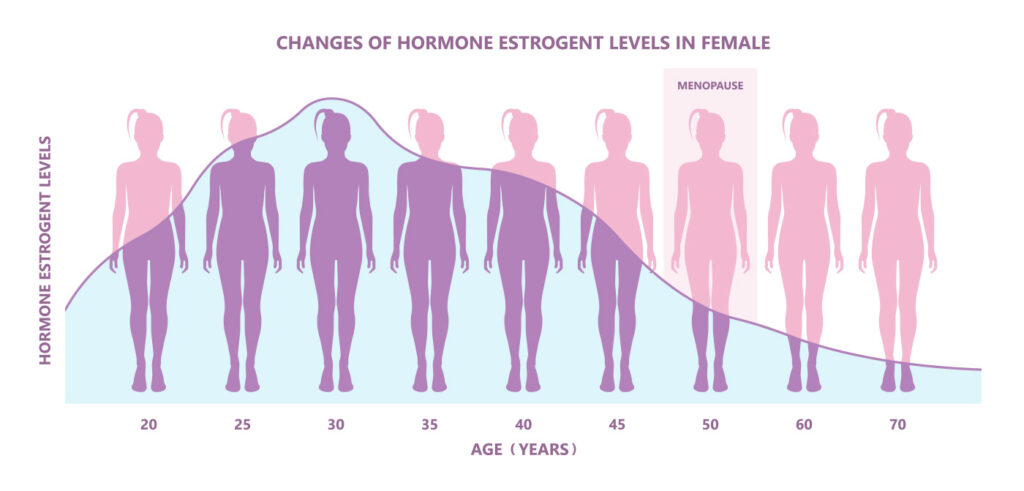 By Claire Fletcher, MD, Family Medicine with Obstetrics
By Claire Fletcher, MD, Family Medicine with Obstetrics
Hormone replacement therapy (HRT) is a way to replace the drop in estrogen that happens during menopause. By increasing the level of estrogen, it helps to lessen menopause symptoms such as hot flashes, night sweats, poor sleep, vaginal dryness, and weight gain, among others. In postmenopausal women, HRT also prevents loss of bone density and reduces the chance of fractures.
If HRT provides several benefits, what are the risks of its use? It hinges on the type of HRT, the dosage, the length of time it is used, and a person’s health history (such as a family history of certain conditions). Weighing the benefits against the risks is a matter that can be discussed with your doctor to see whether HRT may be right for you. If you have a personal or strong family history of stroke, heart attack, blood clots, or certain types of cancer, or if you smoke, other menopause treatment options without hormones may be safer for you.
Replaces Depleted Estrogen
There are two basic types of HRT when replacing estrogen:
- Systemic hormone therapy: This type comes in many forms: pill, skin patch, ring, gel, cream, or spray. It is prescribed to treat menopause symptoms (as mentioned above).
- Low-dose vaginal estrogen: These come in cream, tablet, or ring form. Because the body absorbs less estrogen when using these products, vaginal/urinary symptoms that can accompany menopause are the only ones they treat. They are also lower risk than systemic HRT.
If you haven’t had a hysterectomy, progesterone is often prescribed to balance the effects of estrogen alone. Without progesterone, there could be a risk of endometrial cancer, due to estrogen’s tendency to thicken the lining of the uterus. Progesterone or testosterone may additionally be prescribed for specific symptoms of menopause, depending on the unique needs of the patient.
Talk to your doctor and discuss all of your symptoms and concerns to decide if HRT is a good option for your menopause symptoms. Your provider is the best one to help you find a balance between the benefits and any potential risks of hormone replacement therapy.
Fast Facts About Hormones
Many hormones affect our bodies, and their levels change as we age. Learn more about hormones from Dr. Fletcher.



